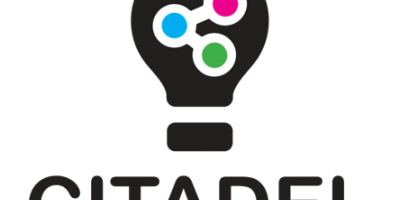Looking for?
Legal challenges in better e-government: CITADEL provides some guidance
In an earlier blog post, Timelex presented the CITADEL project, a project that built several ICT to tools to help governments (public administrations) to understand why citizens do or do not use a certain service, how existing services can be optimized and what is needed to create new and better public services. The project builds on the realization that high quality public services are a necessary basis for citizens’ social welfare and essential to a region’s competitiveness and entrepreneurship. Therefore, the delivery of high quality public services is absolutely instrumental for a society and its economy to function, whether on the national, regional or local level. CITADEL started with the premise that this can be done by involving the citizen in a variety of ways to gain the knowledge of their experience in using, not using or no longer using certain public services, so that existing online services can be optimised and traditional services can be digitized in an appropriate manner.
Tools
In order to help public administrations to do this, the project provides a variety of tools, including a tool for online user assessment of public services, a tool to help citizens discover online services more efficiently based on their profile and a co-creation methodology, as well as a co-creation collaborative tool, the CITADEL innovation platform, which is meant for an easy and low-threshold interaction with citizens on certain topics, where both the citizens and the government can create topics of interest. The co-creation tool and methodology specifically also is meant to incorporate the experiences and opinions of citizens who did not use a certain service or no longer use it. In such a scenario, the public administration is trying to gauge where things went wrong. This is a useful addition to knowing what users of the service think could be better.
All of the aforementioned CITADEL tools are aimed at leveraging the insights of the citizen to create better services, and thus presuppose the processing of personal information about the citizen. The more information is gathered, the better the government will be able to make public services user-friendly, accessible and efficient.
Legal challenges
However, with such ambitions of transforming services into better e-services, come legal challenges as well. In order to guide a public administration through this process and to avoid legal pitfalls, Timelex was charged with writing a legal vademecum for this in the context of the CITADEL project. The result can be found here.
Data protection clearly is a first concern, which already applies during the stage of gathering and processing the information to come to concrete recommendations and conclusions on how to re-design a public service. The GDPR needs to be taken into account throughout, and it is important for the public administration to ensure that its civil servants are able to apply the principles of the GDPR. In order to facilitate this, Timelex provided a framework in the legal vademecum to make the co-creation methodology GDPR compliant, as well as other (more general) GDPR guidance. In order to ensure civil servants’ understanding of the GDPR’s core principles, two privacy literacy tests were created, which can be used to both test the knowledge of individuals as well as to educate them at the same time.
This guidance is also more broadly relevant for the public administrations re-design their public services. During that re-design GDPR needs to be taken into account as well, in order to ensure that the new services are in fully compliance with data protection requirements. The legal vademecum can be helpful in this respect as well.
Other concerns that were identified by the partners in CITADEL as relevant when re-designing and adapting existing services, either by optimising existing online services or digitizing existing traditional services in an appropriate manner were:
- the implementation of eIDAS
- the impact of ePrivacy and the correct use of cookies
- the appropriate way to use Cloud solutions
- the implementation of requirements for the re-use of public sector information (PSI)
- the legal impact of using blockchain for public services
All these issues are discussed in detail in the legal vademecum. While the vademecum was driven by the requirements identified by the CITADEL partners, it is written in general terms and thus has relevance outside the project as well.
More information
For more information about the project, please refer to the CITADEL website and deliverables.
For more information about the legal aspects of the topics discussed in this blog post, please contact a Timelex lawyer.
The CITADEL project has received funding from the European Union’s Horizon 2020 research and innovation programme under grant agreement No 726755.








